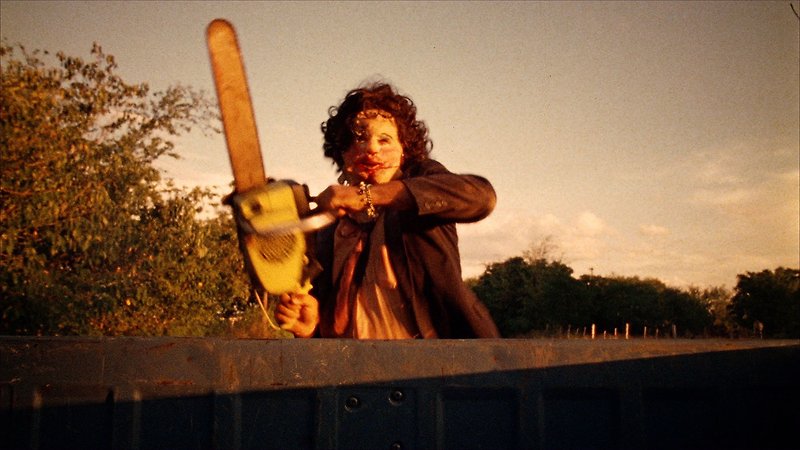Frequently cited as the greatest horror film ever made, Tobe Hooper’s raw, deeply disturbing journey into a sweaty, grimy, all-too-real hell still has the power to shake you to your core.

The ultimate horror movie. It has a brutal beauty, an energy that is absolutely raw.
The Texas Chain Saw Massacre 1974
Even 50 years on, the creeping, sacrilegious aura emanating from The Texas Chain Saw Massacre is impossible to replicate: grimy and shudder-inducing, as if beaming in from Hell itself. Director Tobe Hooper, with a budget of just $140,000, created a work as influential and purely cinematic as anything the horror genre would go on to produce, a lean and brutal descent into madness and violence. Loosely drawing on the murders of serial killer Ed Gein (though its claims to be “a true story” were demonstrably false), the film follows five teenagers who stumble upon a household full of deranged cannibals in the Texas backwoods, including the immense, inhuman Leatherface (Gunnar Hansen) whose weapon of choice is the titular piece of forestry equipment.
Hooper channelled an America transformed by the televisual horrors of the Vietnam War to completely refurbish the language of horror cinema, at times approaching the avant-garde in his terrifying montages of meat, humidity and decay. The film’s transgressive approach to violence and sadism saw it banned in territories the world over including here in New Zealand, adding to the notorious sheen of a film experience unlike any other. — Tom Augustine